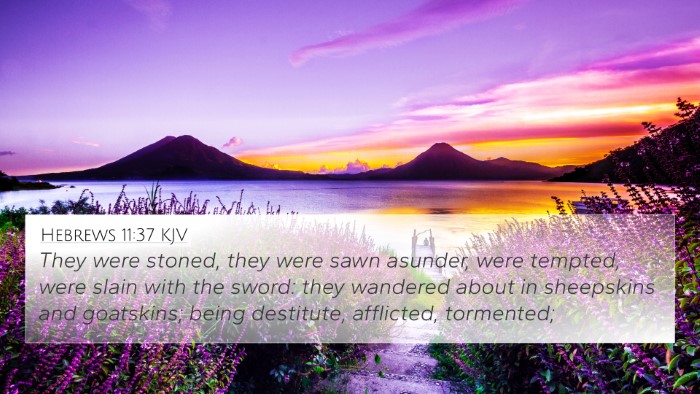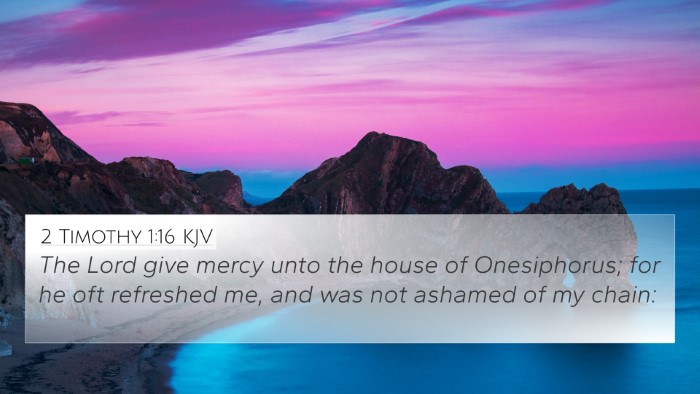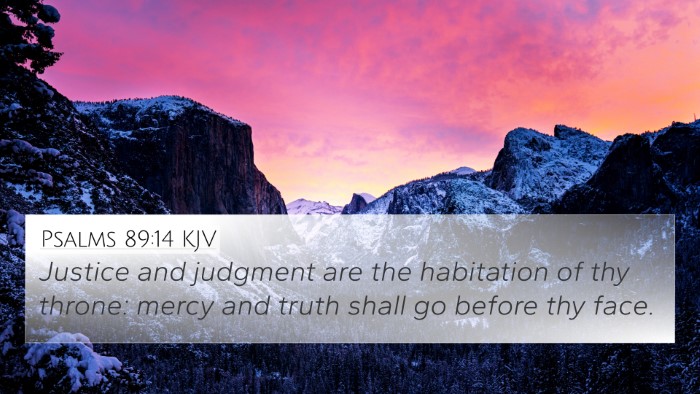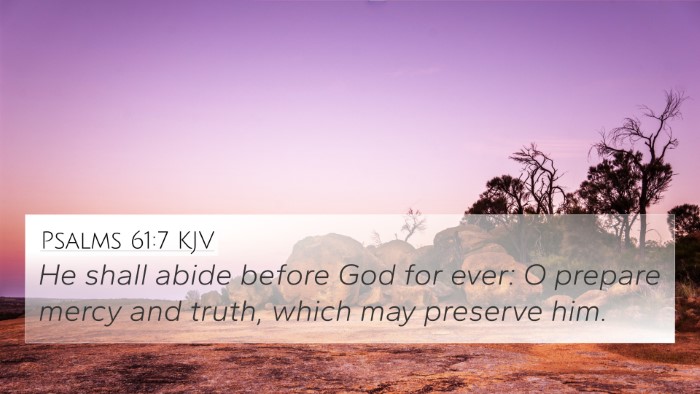Understanding 2 Samuel 15:20
The verse 2 Samuel 15:20 states:
"You came only yesterday, and shall I today make you wander about with us? I go where I must go; but as for you, return and bring back your brothers."
Verse Analysis
In this passage, King David is addressing Ittai the Gittite. David is in a situation of distress as Absalom, his son, has revolted against him. The context highlights themes of loyalty, guidance, and the difficult decisions leaders must make during turbulent times.
Key Themes
- Loyalty and Commitment: David acknowledges Ittai’s recent arrival and the loyalty he has shown despite the dangers involved. This is significant as it reflects on the nature of true friendship and allegiance.
- Leadership Challenges: David is faced with the dilemma of wanting to protect his people while also recognizing the potential danger they may face by continuing with him.
- Parting Wisdom: The invitation for Ittai to return to his own place indicates a compassionate leadership style, allowing others to choose their paths freely.
Public Domain Commentary Insights
Matthew Henry
Matthew Henry notes that David, in his distress, demonstrates a gracious and considerate attitude towards Ittai. Instead of demanding loyalty, he gives Ittai the option to leave, reflecting a sense of humility and understanding. Henry emphasizes that true loyalty is not coerced but willingly given. This also positions David as a leader who respects the autonomy of others in a time of crisis.
Albert Barnes
Albert Barnes highlights that David’s words to Ittai reveal the confidence that David has in the loyalty of Ittai, even amidst turmoil. Barnes points out the significance of Ittai's decision to remain with David; it speaks to his character and the bond formed between them. The verse exemplifies the test of relationships in times of adversity.
Adam Clarke
Adam Clarke provides a deeper understanding of the geographical and relational backdrop present in this verse. He describes Ittai's journey from Philistine territory to join David, marking the transition of someone once viewed as an enemy now becoming a staunch ally. Clarke’s insights draw parallels between Ittai’s newfound allegiance and the broader themes of redemption and acceptance found throughout scripture.
Bible Verse Cross References
- 2 Samuel 15:14: "And David said to all his servants who were with him at Jerusalem, 'Arise, and let us flee; for otherwise none of us will escape from Absalom.'" This verse connects to David's leadership amidst rebellion.
- 2 Samuel 16:6: "He threw stones at David and at all the servants of King David." This demonstrates the conflict and loyalty themes in David's life.
- 1 Samuel 22:2: "And everyone who was in distress, and everyone who was in debt, and everyone who was discontented gathered to him." This shows the gathering of those loyal to David.
- Psalms 3:1-2: "O Lord, how many are my foes! Many are rising against me." This reflects the tumult in David’s life that prompts his address to Ittai.
- Proverbs 17:17: "A friend loves at all times, and a brother is born for adversity." This underscores the nature of true friendship illustrated in David and Ittai’s relationship.
- Luke 9:62: Jesus says, "No one who puts his hand to the plow and looks back is fit for the kingdom of God." This relates to loyalty in commitment despite challenges.
- Philippians 1:27: "Only let your manner of life be worthy of the gospel of Christ." This calls for commitment and loyalty to a cause or leader, connecting back to Ittai’s decision.
Inter-Biblical Dialogue
The event shown in 2 Samuel 15:20 can be seen as a clear example of the connections that exist within the Biblical narrative. David’s leadership, tested through familial betrayal, invites readers to reflect on the nature of loyalty across both Testaments. The loyalty shown by non-Israelite figures like Ittai illustrates the inclusive nature of God’s plan, which is echoed in the New Testament as Jesus welcomes those outside the traditional folds.
How to Use Bible Cross-References
For those eager to dive deeper into the narrative and its implications, utilizing tools for Bible cross-referencing can help strengthen understanding. A Bible concordance can guide you to other passages supporting or contrasting the themes presented in 2 Samuel 15:20, whereas a cross-reference Bible study allows for comparative analysis.
Tools for Bible Cross-Referencing are essential for navigating through the scriptures. Whether you are preparing sermons or seeking to understand specific themes, knowing how to find cross-references in the Bible will significantly enrich your study.
Conclusion
In summary, 2 Samuel 15:20 serves not only as a moment of personal reflection for David but also as a narrative that connects deeply with themes of loyalty, leadership, and friendship found throughout the Bible. The analysis of this scripture combined with the insights from esteemed commentaries provides a layered understanding that enhances the spiritual and practical wisdom contained within the Word of God. For seekers of understanding, examining these connections is profoundly rewarding, fostering a rich study of Biblical themes.
















